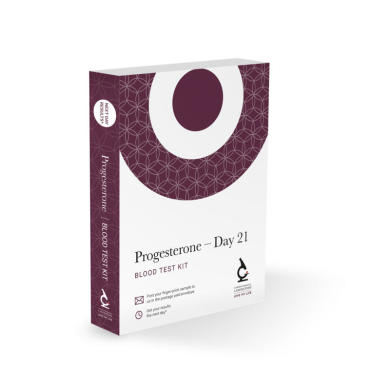Progesterone
Testing your progesterone levels can provide valuable insights, especially for fertility concerns. Understanding if you are ovulating is the first step.
Progesterone

What Can I Expect from a Progesterone Test?
A progesterone test measures hormone levels to confirm successful ovulation, typically showing a significant spike in the second half of your cycle. For women with regular periods, the test should be taken about 21 days after the first day of your last period. For those with irregular cycles, it's best to test 7 days before your next expected period.
A result between 30 and 65.5 nmol/L indicates that ovulation has occurred.
In addition to confirming ovulation, measuring progesterone levels can serve various purposes, such as monitoring hormone levels during pregnancy to assess the risk of miscarriage and checking for conditions like polycystic ovarian syndrome (PCOS).
This test can be performed as a finger-prick home test or through a phlebotomy sample.